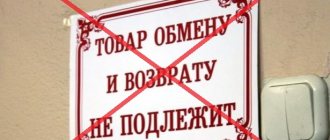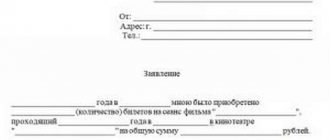Home/Complaint/Bailiffs withdrew money from a Sberbank card, what should I do?
None of us are immune from money write-offs from personal cards. But it’s one thing when funds are withdrawn to pay off a debt. This is, of course, unpleasant, but legal. And it’s another matter when bailiffs withdrew money from a Sberbank card without any reason, or withheld funds from an account where child benefits or alimony payments are received. What to do in such a situation? First, you need to figure out why the bailiffs wrote off the finances from the Sberbank card.
Can bailiffs withdraw money from a Sberbank card?
Employees of the Federal Bailiff Service (FSSP) have the right to seize funds from the debtor’s account. It does not matter whether it is a Sberbank credit card, savings card or salary card. Department employees act in accordance with court verdicts on debt collection and fines that have entered into legal force.
Attention! If you have any questions, you can chat for free with a lawyer at the bottom of the screen or call Moscow; Saint Petersburg; Free call for all of Russia.
Do they have the right to seize a MIR card?
Can a social card be seized for debts and deductions made from it? Considering the nuances outlined above, yes, they can! But at the same time, the FSSP specialist will be obliged to check what income is received in favor of the debtor. If these are payments that are prohibited from being collected, then the bailiff is obliged to instruct the bank to allow the spending of these funds.
Please note that both the bailiff and the bank are obliged to check the intended purpose of the income. This conclusion was recently confirmed by the Supreme Court of the Russian Federation, which considered the dispute over illegal write-off. Also, the debtor himself can provide such information in order to avoid unlawful deduction.
Banks are also required to check the code of the intended purpose of the payment. Such codes are assigned in relation to salaries, benefits and payments from the budget, pensions. If bank employees did not check the income code and made an illegal write-off, they can be held accountable. Let us remind you that the bank blocks the card and debits the funds; the bailiff only sends an order to the bank.
Reasons for writing off funds
Banks write off money from a social card based on the FSSP resolution. It is issued after the initiation of proceedings and identification of the debtor’s bank accounts.
The resolution will state the following:
- information about the debtor;
- the full amount of debt or the amount of periodic deductions;
- percentage of deductions from periodic types of income;
- clarifications on the possibility of spending income for which collection is prohibited.
Does the bailiff have the right to seize a social card if the documents for withholding are sent to the place of work or to an organization that pays other types of income? Yes, this is allowed by law No. 229-FZ. The FSSP representative is obliged to use all methods to execute the judicial act as quickly as possible.
Therefore, collection can occur simultaneously at the place of permanent or temporary work, from bank accounts and wallets. However, the maximum amount of deductions must be taken into account - 50% or 70%, depending on the type of debt.
The procedure for seizing a card with social benefits
The seizure of the MIR card is possible immediately after the initiation of proceedings in the FSSP. It will take the bailiff no more than a few days to identify bank accounts, after which he will issue a deduction order. The debtor will receive FSSP documents on the initiation of a case and on the introduction of restrictions on accounts. However, in practice, withholding may begin before the order reaches the mail.
If you have a MIR card that has been seized, we recommend that you immediately clarify the target nature of the incoming income. Many payments from the state are allowed to be withheld, so applying for unblocking will be pointless. You can clarify the list of income from which money cannot be written off for debts in Art. 101 of Law No. 229-FZ. Our lawyers can help you with this if you contact us for a consultation.
Normative base
The activities of the bailiff service are regulated by Federal Law No. 229 “On Enforcement Proceedings”.
- In particular, Chapter 2 of the above law defines the executive documents on the basis of which bailiffs carry out collections of funds.
- Chapter 5 defines the procedure and deadlines for initiating, completing and suspending enforcement proceedings.
- Chapter 8 regulates the right to recover the property of a defaulter. This implies the seizure and sale of the debtor's property to pay off financial obligations. Bailiffs writing off funds from a Sberbank card is one of the tools for transferring the defaulter’s money in favor of the plaintiff.
- Federal Law No. 118 “On Compulsory Enforcement Bodies of the Russian Federation” dated July 21, 1997, defines the powers and responsibilities of bailiffs, including work with writing off funds from debtors’ accounts on the basis of enforcement documents.
If you change your salary card or place of work
Individuals against whom wages are garnished resort to obvious steps in order to avoid fulfilling their obligations. As a rule, such steps include changing your salary card or place of work. In the first case, nothing will change for the debtor-citizen, since in accordance with Part 3 of Art. 98 225-FZ, the employer makes the transfer to the creditor’s account: the bailiff does not “write off” anything.
Things are a little different when the debtor changes jobs. The obligations of the former employer end here: within one day, the employer returns the writ of execution (or a copy thereof) to the recoverer or bailiff.
The debtor himself informs the bailiff about the new place of work directly (Part 5 of Article 98 225-FZ). If an individual does not do this, he will initiate an executive search in order to establish the location of the debtor, his property, and place of work. The place of work activity is established through requests to the Federal Tax Service and the Pension Fund of the Russian Federation. To establish the whereabouts of the debtor, the SPI cooperates with the internal affairs bodies.
Information sources:
- The procedure for foreclosure on the debtor's property (Article 69) - link.
- Enforcement actions (Article 64) - link.
- Foreclosure of wages and other income of a debtor-citizen (Article 98)—link.
about the author
Irina Rusanova - higher education at the International East European University in the direction of "Banking". Graduated with honors from the Russian Economic Institute named after G.V. Plekhanov with a major in Finance and Credit. Ten years of experience in leading Russian banks: Alfa-Bank, Renaissance Credit, Home Credit Bank, Delta Credit, ATB, Svyaznoy (closed). He is an analyst and expert of the Brobank service on banking and financial stability. [email protected]
Is this article useful? Not really
Help us find out how much this article helped you. If something is missing or the information is not accurate, please report it below in the comments or write to us by email
Why can bailiffs withdraw money from a Sberbank card?
According to Art. 12 Federal Law No. 229, bailiffs withdraw funds from a Sberbank card on the basis of the following executive documents:
- court decision on collection of debts and debts;
- court decisions imposing a fine;
- court order or writ of execution for alimony payments;
- notarial agreement.
At the same time, FSSP employees are obliged to inform the citizen for what reason the funds were debited from the Sberbank card. The bailiffs must issue a resolution to the debtor to initiate enforcement proceedings.
Does Sberbank provide account information to bailiffs?
According to Article 69 of Federal Law No. 229, the bailiff service has the right to request from Sberbank information about the availability of existing accounts of the defaulter, and the financial institution is obliged to provide FSSP employees with this information. At the same time, department employees have the right to obtain data on all the debtor’s valuables that are stored in the bank branch. Information is provided by the financial organization within 7 days from the date of receipt of the request from the FSSP employee.
Sberbank has the right not to comply with the order of the bailiffs if the debtor’s accounts are empty or the card was previously blocked
Where can FSSP employees write off money from?
FSSP employees have all the tools in their hands to write off the defaulter’s money from the Sberbank card. In this case, the executor has the right to foreclose on various types of income of the debtor (Chapter 11 of Federal Law No. 229):
- wage;
- long service or old age pension;
- scholarships;
- debit cards;
- electronic wallets (Yandex-Money, Qiwi, WebMony).
IMPORTANT
If the debtor has alimony obligations in relation to minor offspring, then the list of cash receipts that can be written off by bailiffs from a Sberbank card is expanded (The list is regulated by Government Decree No. 841 of July 18, 1996)
Reasons for arrest
A salary account may be frozen under the following circumstances:
- the loan was not repaid on time, or the debt arose due to other circumstances;
- the obligation is not fulfilled voluntarily;
- the person does not have other bank accounts or other property.
In such cases, collections may be made from wages or other periodic payments, such as pensions or stipends.
How to find out that bailiffs have withdrawn money from a Sberbank card?
A defaulter may find out that money was debited from a Sberbank card by bailiffs completely by accident:
- the debtor receives an SMS message (from number 900);
- the person from whose account the funds were debited cannot make a purchase in the store because the Sberbank card is blocked;
- accidentally discovers that there are much less funds in the account than it should be.
In such cases, it is best for a citizen to call the Sberbank hotline and clarify information about the funds written off. An employee of a financial organization must provide information about why the money was withdrawn (case number, on the basis of which document the withdrawal of funds was made and the full name of the executor).
If a citizen has any debts or suspects their existence, then in the bailiffs database you can find information about enforcement proceedings and measures to implement collections.
Possible trouble prevention
To prevent blocking of a salary card, it is necessary to repay the payments that the borrower has on time. If you need money urgently, you can try to borrow it from relatives or friends. In addition, if your wages are seized, you can contact a bailiff - in exceptional cases, they will accept other property to pay off the debt.
Find out about your debt
Free online check of legal debt
Find out the debt
The procedure for writing off money by FSSP employees
The bailiff service notifies the defaulter that enforcement proceedings have been initiated against him. If within 5 days after receiving the document in hand the person has not started paying the debt voluntarily, FSSP employees begin the procedure for writing off funds from the violator’s Sberbank card (Clause 12, Article 30 of Federal Law No. 229). This happens in the following order:
- The bailiff is searching for the person.
- Information is requested from Sberbank about the availability of the debtor's account with a positive balance.
- The person is notified that enforcement proceedings have been initiated against him, and a warning is given about the withdrawal of money from the Sberbank card forcibly.
- If the debtor refuses or is unable to pay off material obligations within five days, a resolution is sent to the bank to force the funds to be written off to pay off the debt.
- An employee of a financial organization is obliged to comply with the order of the bailiffs immediately and inform the FSSP employee about this no later than 3 days (Clause 5 of Article 70 of Federal Law No. 229).
- Having received information about the receipt of money into the account of the claimant, the bailiff closes the case. If the funds were partially debited from the Sberbank card, then enforcement proceedings will last until the total amount of the debt is repaid.
Step-by-step instructions for actions after blocking
The first information about the debtor's payment cards comes from large banks that provide the FSSP with information in accordance with the agreement on electronic document management. Opening an account in a small regional unit will somewhat delay the arrest.
If this happens, experts recommend that the debtor take the following actions:
- Obtain a statement from a financial institution to confirm the existence of a salary card. Then submit a written request to the service to remove part of the monthly penalties. The debt will also be repaid evenly, but no more than half of the incoming funds will be withheld from the account.
- It is possible to avoid deductions by receiving wages in cash, bypassing the bank, which may be a preliminary agreement with the employer.
- An agreement with the creditor to defer or partially repay will also prevent the account from being frozen.
- If the bailiffs blocked the salary card, which is the main source of income, the actions of the executors can be appealed in court.
Of course, the best way out of this situation would be to pay off the entire obligation. Then the bailiffs will send information to the bank about the removal of the seizure from the salary account.
Client contacting the bank
Step-by-step actions when blocking and withdrawing money from an account by bailiffs.
A citizen should prepare in advance to remove the seizure from a salary card. To do this, you need to find out the number of the writ of execution from the bank and receive a statement of the blocked account. But if transfers are made to it from other sources, but do not exceed half of the wage accruals, then there is a chance that the deductions will not be higher than 50%.
Collection of documentation
To officially confirm that an account has been assigned salary status, the debtor needs to take several documents from the employer:
- a copy of the work book;
- extract from the company's accounting statement.
The papers are sent to the bailiffs to lift the arrest. The bailiffs, in turn, send a letter to the debtor’s organization to reimburse the arrears from wages.
Sample statement of salary account
The sample certificate is not a strict reporting document, therefore it is written in any form, but always in a business style.
Contents of the document:
- postal address and details of the representative office of the regional bailiff service;
- full name of the applicant, place of registration, contact phone numbers;
- under the group of upper details the word “Application” is written;
- The essence of the appeal is described below - the number of the writ of execution, the date of preparation, the number of the order is indicated.
Actions will lead to a reduction in the interest deduction, and not to the seizure of the card.
Application for reduction of deduction amount
A similar petition is submitted when transferring a writ of execution to a banking structure. Bailiffs do not have information about the account being seized, and besides, the card is not always a salary card - therefore it is subject to large deductions.
Sample application for reduction of deductions.
Removal of arrest
If bailiffs withdraw money from a salary card, it means that it has been seized, which makes it impossible to dispose of it. To prevent this from happening, there are mitigating circumstances. One of these could be raising children as citizens. This fact is presented by an extract on the marital status of the defaulter or a single parent raising minor children.
An additional argument will be a completed petition to the federal service, containing the following information:
- name of the body;
- full name of the bailiff, address of the FSSP unit;
- date of opening of enforcement proceedings, sheet number;
- serial number of the conclusion;
- name of the bank, details of the seized account.
The application is considered within one month, after which a response is provided to the applicant. A personal contact with the service will help you quickly remove the seizure imposed by the bailiffs from your salary card.
Arrest without warning
According to the law, banks are not required to inform the client about the seizure of the account. Although information can be obtained via SMS or online application. But often financial institutions do not want to spoil relations with debtors, especially in anticipation of a large payment.
Order to lift the arrest
A positive response from the FSSP to the applicant’s application means the seizure of the account is lifted. Unblocking can occur using an electronic document management system between the financial institution and the bailiffs' department. This significantly speeds up the removal of seizure from the account.
However, the system may fail and then the operation is delayed. To speed up the procedure for lifting the blocking, the applicant needs to personally contact the bailiff. Take a written order from the FSSP employee for the bank.
By law, bailiffs are required to transfer such documents to a financial institution. However, heavy workload sometimes does not allow this to be done, as a result of which they instruct the decision to be taken to the plaintiff or debtor.
Deadline for lifting the arrest
An employee of the federal branch must submit a resolution to unblock the account, which the applicant has the right to take to the monetary institution. On average, the arrest will be lifted within a week.
After repaying the obligation, the former debtor is recommended to obtain a certificate from the creditor stating that there are no financial claims. The received document must be sent to the regional office of the FSSP. This will also serve as an additional basis for lifting the seizure of plastic.
Where can I go to get back the money that the bailiffs withdrew from my Sberbank card?
The grounds for forced debiting of money from a Sberbank card by bailiffs are the provisions of Federal Law No. 229. FSSP employees withhold the amount in accordance with the executive document. At the same time, no one is protected from erroneous debits of money from the account.
A citizen has the opportunity to return material funds that were withdrawn by bailiffs from a Sberbank card in the following cases:
- withdrawal of funds occurred from payments that are not subject to collection (Article 101 of Federal Law No. 229);
- the amount exceeds the required amount of withholding (Article 99 of Federal Law 229);
- when bailiffs mistakenly write off money from a Sberbank card (for example, from the debtor’s namesake);
- in case of a technical error;
- if the effect of the executive document is challenged and cancelled.
IMPORTANT
To return illegally written off money withdrawn by bailiffs from a Sberbank card, you must draw up a corresponding application. A petition is written addressed to the head of the FSSP of the executive employee who made the withdrawal of funds. The appeal is drawn up in 2 copies. You can submit an application to the bailiff service in person. At the same time, a mark indicating the receipt of the document is placed on the second copy of the petition, indicating the date and signature of the employee who accepted the document. If it is impossible to deliver the application directly to the head of the department, the application can be sent by registered mail with notification.
In a situation where the money written off by the bailiffs from the Sberbank card has already been transferred to the creditor’s account, an application for return is presented to him. If a party refuses to return funds illegally withheld by FSSP employees, it bears administrative responsibility. In addition, you can file a lawsuit against the creditor and receive not only your unfairly written off money, but also compensation for losses and moral damage.
Required package of documents
To demand the return of money illegally debited by bailiffs from a Sberbank card, you must submit the following documents:
- Application for refund of written-off funds.
- Applicant's passport.
- Evidence that the bailiffs withheld the money illegally. This could be certificates from social security authorities that child benefits are transferred to this Sberbank card. Information about income or a document on termination of enforcement proceedings in connection with the reversal of a court decision. In general, any information confirming the legal basis for a refund.
Application for refund
Having in hand evidence of the illegal debiting of money from the Sberbank card by the bailiffs, an application is drawn up for the return of funds to the citizen’s account. The application process is completed as follows. In the right corner of the sheet the name and position of the head of the bailiff service is indicated. Further information about the applicant: full name, address, contact details. The text of the statement sets out the essence of the issue. It is important not to forget to indicate the number of the enforcement proceedings. Complete the description of the requirements with a list of attached documents. Under the text, put the signature of the applicant and the date of the application.
A sample complaint against a bailiff can be found
What to do if you are arrested
Wage garnishment is an unpleasant situation that can significantly undermine the family budget. In particular, the problem is the situation when wages are collected in full, despite the appointment of regular transfers. In this case, it is recommended to take the following actions:
- Contact the bailiff who is conducting the relevant enforcement proceedings. There are situations when the bailiff does not know that the card is a salary card. The purpose of the account is often not indicated in the information available to the bailiff, and sometimes he simply does not double-check the information due to his workload. The card holder needs to contact the FSSP in person. You should take an account statement and write a statement. After this, transfers should be reduced to half.
- Contact your employer and change the procedure for issuing wages. Each employee has the right to choose how to receive their earnings, in cash or on a card. No one has the right to force him to choose a certain order. Therefore, an employee can submit an application addressed to his superiors and receive money at the cash desk. Undoubtedly, the bailiff will also be able to seize half of such earnings, however, he will no longer be able to seize the entire salary.
- Appeal the actions of the bailiff. This can be done in court or through a higher authority. Action is recommended if the specialist refuses to lift the arrest voluntarily.
- Pay the debt. If such an opportunity exists, it is better to pay off the debt in full. This will completely remove the arrest and not return to this issue in the future.
Quite often, wages are seized in full, even without notifying the debtor. In this case, the bailiff may not make any contacts. In such a situation, you have to begin the most radical methods of protecting your rights, that is, filing a complaint with the court or with the bailiff’s superiors.
Download the application to recognize the actions of the bailiff as illegal (sample/form)
The procedure for returning money withdrawn by bailiffs from a Sberbank card
If a bailiff illegally wrote off money from a Sberbank card, the funds can be returned. To do this you need:
- Receive a document confirming that the amounts were debited from the Sberbank card by an employee of the FSSP unlawfully. You can get a certificate from the bank detailing the account and the source of funds. Information can also be obtained from the organization that transfers these funds to the debtor’s account.
- Write an application addressed to the head of the FSSP.
- Attach the required papers.
- Expect the withdrawal of the writ of execution from the bank or the transfer of funds from the creditor.
Ways to receive salary when an account is frozen
Forced collection is conditioned by sending orders to banks where there are cards of the debtor and his employer. However, it will not be possible to calculate more than half of a person’s monthly income.
If the account is frozen, the citizen can use one of the options to receive 50% of the salary:
- open a new account at a small bank that federal employees won’t find out about, at least for a while;
- contact the employer about paying part of the money through the company’s cash desk.
However, the first option can be regarded as concealment from penalties by court decision, especially since repeated requests from the FSSP will reveal the presence of another account. Paying out no more than half of the salary in cash at an enterprise is not considered a violation of the law. However, this is not always acceptable to the organization.
What to do if the bailiffs do not return the money?
It happens that a citizen wrote an application for the bailiff to return illegally debited funds from a Sberbank card, and attached all the necessary evidence. However, the FSSP employee is in no hurry to send the money or refuses to issue it. In this regard, a complaint is filed against the performer to his immediate supervisor. The appeal must describe the problematic situation, characterize the actions of the bailiff, list the violations that were committed by the FSSP employee, and at the end make a demand for the elimination of all shortcomings.
For your information
But if the situation regarding the return of the money written off by the bailiff from the Sberbank card has not moved forward, the citizen has the right to file an application against the FSSP officer in the district court. A petition with an administrative complaint is drawn up and sent to the court at the location of the territorial department of bailiffs. An administrative claim must be filed within ten days after receiving a response to the complaint from an FSSP employee (Clause 2 of Article 219 of CAS Federal Law No. 21 of 03/08/2015).
The application must be accompanied by:
- copy of passport;
- document on initiation of enforcement proceedings (if any);
- a certificate of the bailiff debiting money from a Sberbank card;
- evidence of the illegality of transferring funds to the claimant’s account;
- a copy of the refund request;
- a complaint against the bailiff to his supervisor and the response to it.
Shouldn't you confuse arrest and card blocking?
Seizing a card and blocking funds on it should not be confused with blocking the card itself. The last option is practiced by the bank when the client entered the PIN code incorrectly 3 times in a row in the payment terminal, blocking.
When a card is blocked in this case, in most cases you receive an SMS, push notification, or email. But this is optional. Some banks, if the client has entered the PIN code incorrectly three times, automatically block the card and do not send any notifications.
How to protect a Sberbank card from write-offs by bailiffs?
The most effective way to protect a Sberbank card from writing off funds by bailiffs is to fulfill debt obligations. That is, you need to at least start paying off the debt so that the FSSP employee has no reason to withhold money from the account.
However, if the debt, although recognized by a citizen, is not possible to pay at the present time, you can go to the bailiff service and agree to send a resolution on enforcement proceedings to the organization’s accounting department to withhold part of the income.
Attention
The bailiff does not always know where the money on the debtor’s Sberbank card comes from. If, for example, child benefits, social payments or alimony are transferred to an open account, then they do not have the right to write off the finances. To avoid further red tape with the return of money, it is better to immediately provide the FSSP employee with evidence of the illegality of these deductions.
Limitations on wage garnishment
As we have already found out, a bailiff can block and seize a debtor’s account at any time of the day. A preliminary warning is sent to the debtor by the court.
The right of bailiffs to seize a salary card is actively used in practice. At the same time, they cannot write the entire amount that is on the card at one time. Salary is the only source of income for the majority of citizens of the Russian Federation, therefore the following restrictions on salary arrest are provided:
The maximum amount of salary write-off is 10% of the total monthly income. However, if there are not enough funds on the salary card to repay the debt, the bailiff will write off all the money that is in the account. In the latter case, an additional 50% of the salary will also be written off. In addition, up to 70% of the monthly salary can be written off in cases of forced collection of alimony.
And also in cases when:
- The defaulter does not pay for damage resulting from harm and subsequent loss of the breadwinner.
- If the debt arose as a result of theft.
- If the debt is not repaid after causing harm to health.
In what cases are bailiffs prohibited from withdrawing money from a Sberbank card?
Article 101 of Federal Law No. 229 regulates all types of income from which bailiffs are prohibited from writing off a Sberbank card. Thus, collection of debt cannot be applied to:
- alimony;
- all benefits from the state related to the birth of children and paid for their maintenance (maternity capital, one-time and monthly payments);
- benefits for caring for a disabled person;
- survivor benefits;
- preferential cash payments to certain categories of citizens;
- amounts paid for injuries and injuries to an employee in the performance of his official duties, as well as to family members in the event of his death;
- funds issued for compensation for damage caused;
- various types of compensation determined by labor legislation (travel allowances, financial assistance, compensation for wear and tear of employee equipment, etc.);
- funeral funds;
- compensation payments for vouchers and travel to and from the place of treatment;
- one-time financial assistance related to a state of emergency (terrorist attack, natural disasters).
However, as noted earlier, the bailiff does not always know the history of the receipt of funds on the debtor’s Sberbank card. In this regard, illegal debits from the account often occur. If it is discovered that a FSSP employee has withdrawn funds to repay a debt, you must write an application for the return of money addressed to the head of the government agency and provide evidence of the illegality of the withdrawal.
Problems and nuances
There are a number of nuances that citizens should take into account when bailiffs write off money from a Sberbank card:
- An FSSP employee has the right to choose only one account for withdrawing funds from the debtor on the basis of enforcement proceedings. If for some reason this account needs to be replaced with another, the bailiff must revoke the writ of execution and submit a new one to the credit institution.
- If there are not enough funds in the account, the amounts will continue to be debited as they are received on the Sberbank card.
- More than 50% of income cannot be taken to pay off debt. However, under some circumstances, the volume of money written off from the card by bailiffs reaches 70% quite legally (clause 3 of Article 99 of Federal Law No. 229). This happens in case of malicious alimony debt or if there are 3 or more children in the family, one of whom is disabled.
Comments Showing 0 of 0
Let's sum it up
If the bailiffs have seized the salary card, the debtor has the right to challenge this restriction. To begin with, it is recommended to contact a specialist and explain the purpose of the account. If this does not work, you can appeal the illegal action in court or through a higher authority. In any case, collections should be limited to half of the regular payment so that the debtor has a means of subsistence.
Read: Is there a statute of limitations on credit cards?









